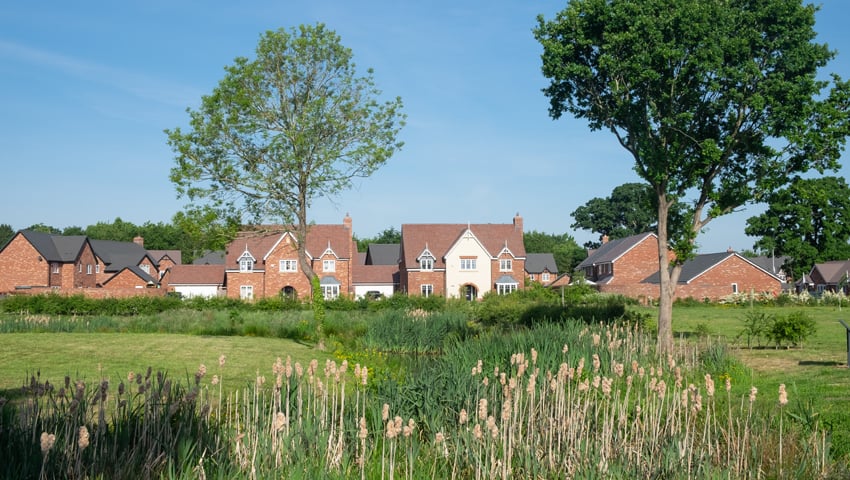Article by William Nichols, Regional Director of planning consultancy, Lanpro
In its first days in office, the new Labour government has certainly hit the ground running, with a first Cabinet meeting on the Saturday morning, a tour of the UK’s devolved administrations from Sir Keir Starmer, and Rachel Reeves’ speech to business leaders this morning.
In today’s speech we were encouraged to hear that Keir Starmer’s promise of ‘sunny uplands’ extends to planning and development, along with the other areas that Lanpro’s work involves – environmental design, landscaping and the historic environment.
Rachel Reeves laid out plans to ‘get Britain building again’, delivering jobs and 1.5 million new homes over the next parliament and the biggest increase in social and affordable housebuilding in a generation. The announcement of the immediate reversion of the NPPF and in particular the reintroduction of mandatory housing targets and the consultation on long term planning reform are very welcome in this respect.
We agree with Rachel Reeves that the current effective ban on onshore wind ban is ‘absurd’, particularly in light of Labour’s manifesto pledge to cut carbon emissions and meet net-zero targets. Bringing onshore wind back into NSIP regime would be immensely beneficial – as would the announcement that energy projects already in the system will be process swiftly. Lanpro recently took the West Burton and Cottam Solar Projects near Gainsborough, Lincolnshire to the next stage of the Development Consent Process and today’s announcement is good news for this scheme and many others like it which will delivery clean, efficient energy to thousands of households.
Much of the detail in terms of planning reform, inevitably, remains to be seen, and will be fleshed out over the coming weeks and months. It is encouraging that Labour is committed to funding additional planning officers and better resourcing planning departments, but the 300 new planning officers announced today will not resolve the considerable backlog: that equates to less than one planning officer per planning authority. A far more comprehensive increase is likely to be required, involving additional university places and cross-skilling, as well as providing incentives for planning officers to remain working in the public sector.
Similarly, it is encouraging that the Secretary of State will set new expectations of local planning authorities, specifically in relation to mandatory local plans, prioritisation of brownfield land and strategic Green Belt boundary reviews. We also look forward to further detail on how so called ‘Grey Belt’ might be defined. But planning law, further to planning policy, will be needed to achieve this.
Perhaps most significant was Rachel Reeves’ final comment regarding development “we will not succumb to a status quo, which responds to the existence of trade-offs by always saying no, and relegates the national interest below other priorities”. We saw far too much acquiescence in the last government: today marks a start of a new, more positive approach to planning which is long overdue. However, we don’t underestimate the level of opposition to development, and given Labour’s strong performance in areas like the Home Counties, new Labour MPs may find themselves in the position where many of their new constituents oppose development, creating some difficult choices.
The rate of delivery will also require a sensitive balancing act. Increasing housing, and with it, the necessary infrastructure – from transport and energy solutions to community infrastructure and amenities – is undoubtedly an urgent priority. But it would be wrong to implement planning reform in haste. Many of these increases in housebuilding are not simply reliant on a more efficient planning system, they also require skilled labour, materials, and a strong market.
A change in government is immediate but to make substantial changes across all aspect of planning and development requires a longer-term process of observation, consultation and implementation. I believe it is important that those of us in the sector are involved in that process. We have direct experience of the successes and failings of the past 14 years and before, and are keen to make a positive contribution to get Britain building again.
